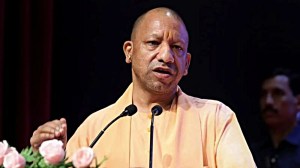‘US has made big concessions, met almost all Indian requests’
An unsigned opinion article in the People’s Daily is as close as one can get to thinking in official China.

An unsigned opinion article in the People’s Daily is as close as one can get to thinking in official China. The daily is the voice of the Central Committee of the Communist Party of China. Beijing has tended to refrain from overtly articulating its view on the Indo-US nuclear agreement. But in an analysis titled Prospects of Indian-US nuclear cooperation misty, the daily argues — in an uncanny echo of India’s own comrades — that the nuclear deal is an expression of American hegemony. Here is the full text of the article published last week:
August 3 saw the release of the final text of the Indian-US civil nuclear cooperation pact, marking a new stage in their bilateral nuclear cooperation. The cooperation bears on the Indian-US ties as a whole as well as on the situation in South Asia. Both Pakistan and Iran responded strongly, believing that Washington follows double standards on the nuke issue and its cooperation with India might threaten the strategic stability in the region.
In March 2006, when paying a visit to India, President Bush signed with the nation the agreement on civil nuclear cooperation, but only after five rounds of hard negotiations during two years did the two parties finally arrive at a text for execution. The talks once stalled before the text was finalized in late July this year.
The parties were divided chiefly on two points, nuclear experiment and the disposal of nuclear waste. Washington insisted that India could not conduct nuclear tests and must return to the US nuclear waste and equipment produced or used during the cooperation period; while India argued for its rights to keeping nuclear tests and disposing waste, saying they are in line with the spirit of “overall and complete cooperation”.
Judging from the text, however, the US has made big concessions and met almost all Indian requests, including full supply of nuclear fuel to India and allowing it to dispose nuclear waste. India’s right to continue conducting nuclear testing will depend on “circumstances”. According to the text, if India can satisfactorily justify its nuclear testing, the US would acquiesce. That is, Washington has actually acknowledged India’s right to retain nuclear testing.
The US-Indian relations have been going on and off for 60 years, and cooperation has never been smooth enough. But now, the nuclear pact reached under US concessions has injected substantial content to the bilateral strategic partnership. In the joint statement by US Secretary of State Condoleezza Rice and Indian External Affairs Minister Pranab Mukherjee, the agreement on civil nuclear cooperation is acclaimed as a “historical milestone” in the strategic partnership. Therefore, it is safe to predict that a substantial change has taken place in the nature of Indian-US relations despite possible turns and twists in future.
Indeed, improving ties with India and strengthening cooperation are in line with historical trends, but it should never be at the cost of international principles. British media said the US “nuclear award” to India has burned a big hole in the global non-proliferation system. This is incorrect, dangerous and unnecessary.
The US Atomic Energy Act explicitly forbids the transfer or sale of nuclear technologies or materials that can be used on military purposes in civil names to any non-signatory to the Treaty on the Non-Proliferation of Nuclear Weapons (NPT). Indian is among the few countries that refused to sign.
Consequently, Washington, in exercising double standards on the nuclear issue of India, have sent a signal of danger to the world, by spoiling its authority on the international arena, damaging the existing non-proliferation system and beating global efforts towards non-proliferation.
It is quite obvious that the US generosity in helping India develop nuclear energy is partly due to its hegemony idea, which made it regardless of others’ opinions, and partly due to the intention of drawing India in as a tool for its global strategic pattern.
But the result might turn out not so satisfactory since India, out of practical political considerations, only wants to seize the opportunity and rise as a big power. An Indian scholar put it frankly: India’s DNA doesn’t allow itself to become an ally subordinate to the US, just like Japan or Britain.
Photos


- 01
- 02
- 03
- 04
- 05





























